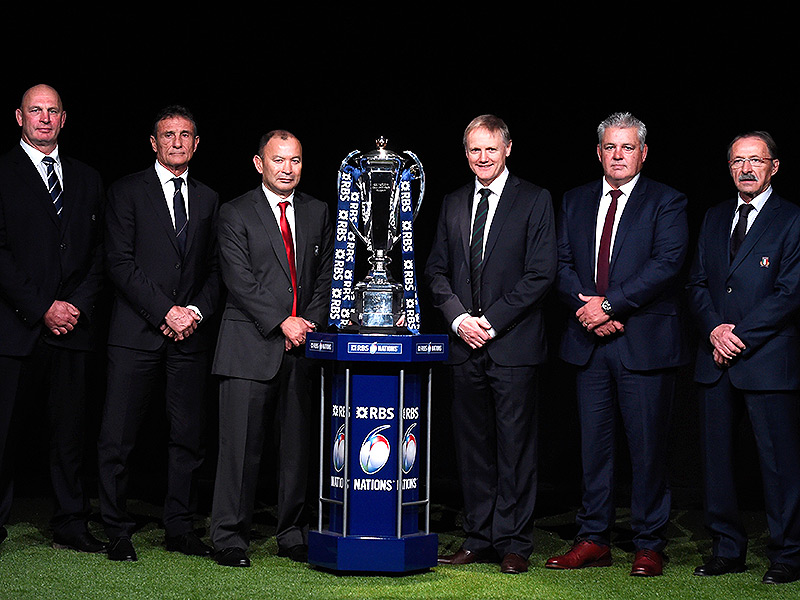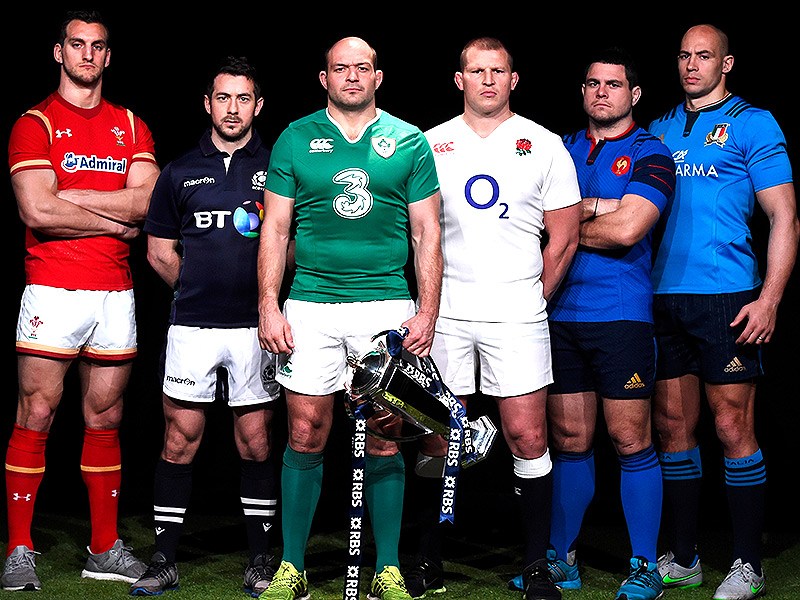Six Nations won't cure European blues
Last year's World Cup was the first time that no European side had made it into the semifinals of the showpiece tournament, with the last four places filled by eventual champions New Zealand, runners-up Australia, South Africa and Argentina .
.
Given there had been calls for Argentina to be included in the Six Nations before they joined the Southern Hemisphere Rugby Championship, the performance of the Pumas at the World Cup was a particularly salutary lesson for European chiefs.
It was hard to imagine the way Argentina added to their traditionally forward-dominated approach with enterprising back-play would have emerged had they become the 'seventh' nation rather than joined their fellow World Cup semi-finalists in the Rugby Championship.
Wales coach Warren Gatland said that if Europe wanted to get back on terms it might have to put Six Nations results in a more long-term perspective, with defeats viewed as part of a process towards building teams better able to compete on the global stage.
But Gatland, whose association with the Six Nations dates back to his first involvement as Ireland coach in 1998, knew that was easier said than done.
"There is no doubt there is some absolute quality in the Rugby Championship," the New Zealander said at the launch of this year's Six Nations.
"We have seen that and we can't argue with that in terms of the World Cup.
"But as a competition, nothing rivals the Six Nations. It's not just a rugby game, it's an event, it's bragging rights for 12 months," added Gatland, who has won three Championships, including two Grand Slams, with Wales.
"What's brilliant about it – and what the Southern Hemisphere can't replicate – is the amount of away fans. That's what creates the atmosphere in stadiums. That's special, it's absolutely brilliant. There's the history of the tournament as well."
In the Six Nations, the teams play each other just once in the course of a Championship and Gatland said: "Perhaps where the Rugby Championship has a slight advantage is those home and away fixtures and the flexibility to be a bit more expansive in the way teams play.
"This tournament is over so quickly, there's a lot of external pressure on teams and coaches to get results and perform. You lose a game and everyone's desperate to get a result.
"It's all about winning rather than the way that you play."
"Conversely, on the final weekend last year, we saw when the shackles came off and teams had to go out and play, we saw what we are capable of doing," said Gatland in a reference to a day where 27 tries were scored in three matches, with Ireland winning the tournament on points difference.
"We saw some brilliant rugby. If we were able to produce that on a more consistent basis, then I think we would compete more with the Southern Hemisphere.
"Maybe long term the best thing for Northern Hemisphere rugby is to forget about the pressure of just winning. Sometimes you are going to have great games of rugby and one team is going to lose," explained Gatland, who also coached the 2013 British and Irish Lions to a series win in Australia.
"It doesn't mean you have had a terrible campaign. If we could be more positive and play more positive rugby I think that would have a good impact on the game in the Northern Hemisphere."
Agence France-Presse









































